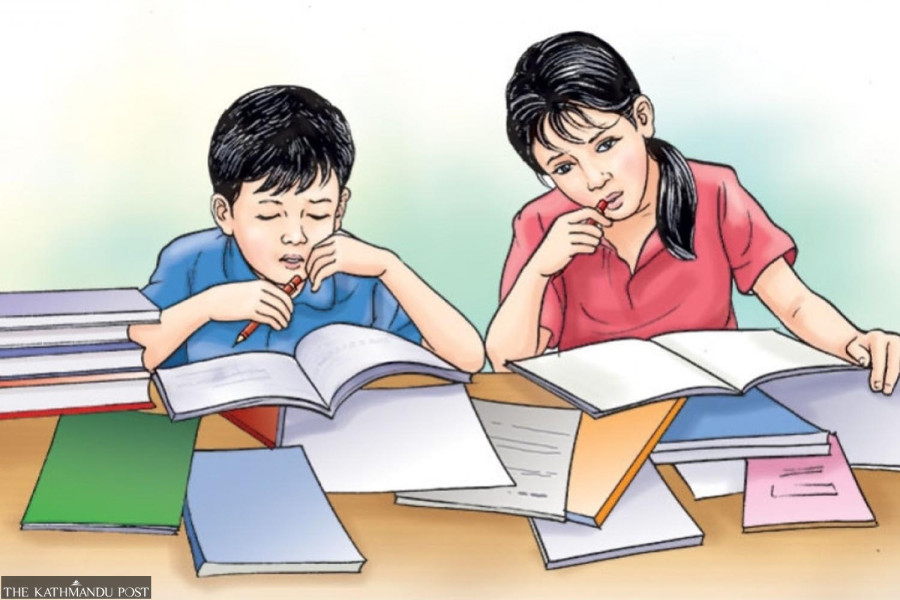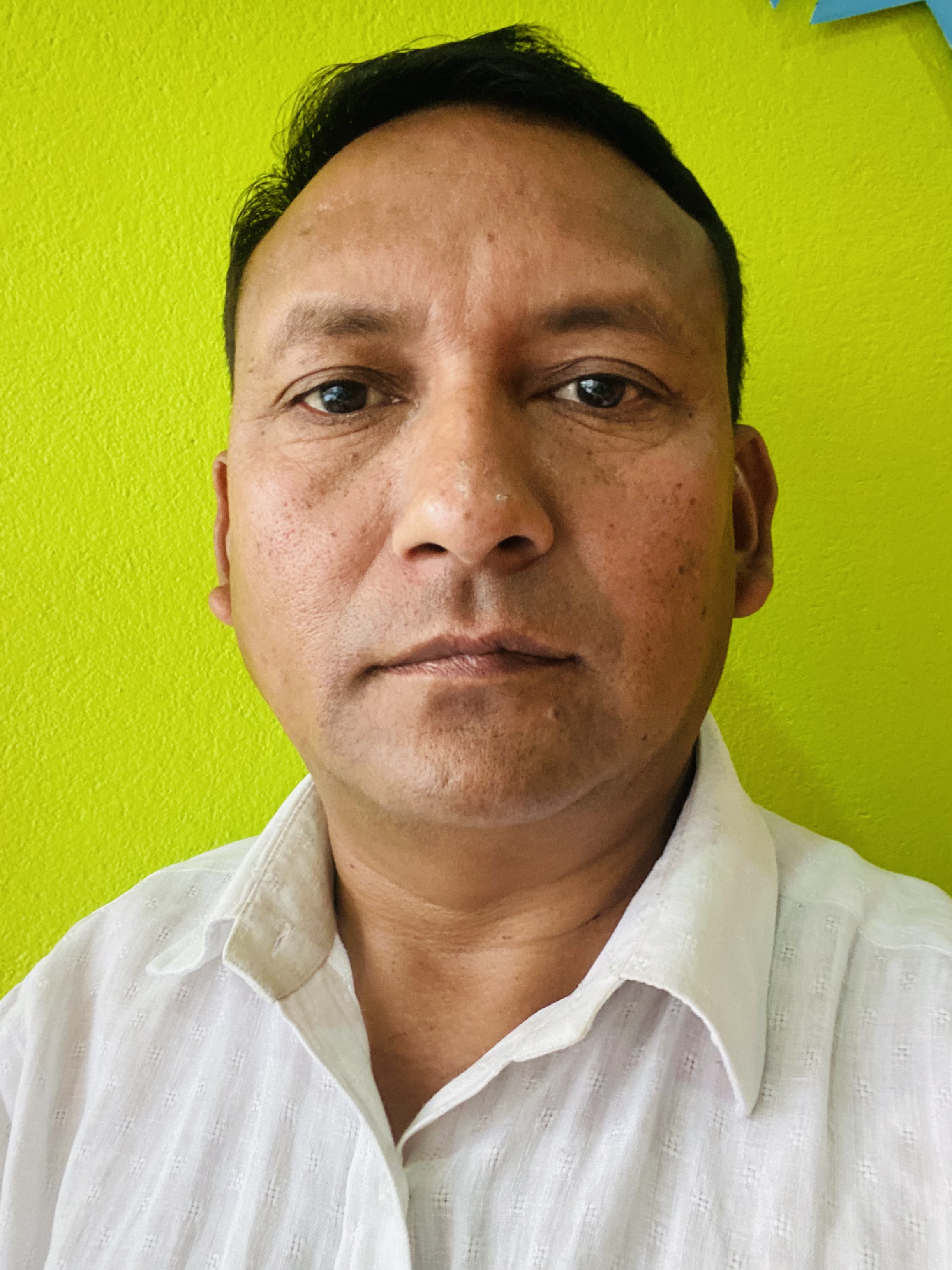Columns
A homework for the education minister
The government’s failure to include the issue of caste discrimination in textbooks is deeply problematic.
Mitra Pariyar
UNICEF and other international organisations, including our statutes, claim that education is a basic human right. To achieve that goal, we need to re-examine our school education critically. There’s a need to make quality education available to all students, irrespective of their class, and to revamp and modernise our teaching and learning methods for the progress and prosperity of our country.
Our school kids are mercilessly loaded with home assignments every day. Here, if I may, I would like to give a homework to our Education Minister, Raghuji Panta, to try and make our school education more scientific, egalitarian and change-oriented. He should perhaps start by examining the contents of the school textbooks.
A burdensome education
The minister and secretaries in the education ministry could and should consider many issues. One of them is, of course, a very burdensome schooling system that has evolved over the years.
Our schooling system has been a big burden on the government regarding budgetary allocations. With the nation’s economy always in the doldrums, the government struggles to pay the teachers’ salaries, let alone school buildings and educational materials. The effectiveness of the government’s investment in public schools is yet another issue altogether.
School education has become a big burden for many Nepali guardians who struggle to pay the exorbitant fees in private schools. The educators have mastered the art of ripping parents off.
This widespread problem has long been overlooked. This apathy is due to, among other things, many party leaders and members investing in these expensive schools. Foreign Minister Arju Rana Deuba is a prime example; she runs Ullens School, one of the most expensive private schools in the country.
Ironically, many politicians who profess themselves as bona fide communists and/or socialists themselves have heavily invested in private schools (and hospitals and whatnot)! Owners of private educational institutions bribe policymakers and government ministers to silence them.
Lastly, schools have become a big burden for students themselves. It’s heartbreaking to see little kids carrying bags heavier than their body weights. Poor children can’t sleep well at night because they must stay up late to complete many assignments.
This unscientific education system under the shadow of the ancient Gurukul system has meant that these young minds are forced to absorb massive amounts of information like a sponge. They have little time or energy left to think critically about the subjects. No wonder, once they have completed their education, few Nepalis want to see a book ever again.
Professor Albert Bandura of Stanford University once noted, “The main function of education is to teach one to think sensibly and critically.” It’s not very scientific to force pupils to memorise loads of knowledge and information, which is readily available online. Instead, they must be trained to engage reflectively and critically and to create new knowledge.
Thanks to this very traditional school education system, the country hasn’t produced many smart philosophers, political thinkers, or economic theorists. Our educational institutions haven’t contributed to the advancement of science and technology.
What we have achieved, therefore, is the mass production of medical doctors and engineers and high school graduates who aspire to nothing other than going to America, Europe, or Australia for a better career and a better future.
Young people educated in schools are under an obligation to work in the sweatshops of Gulf states and Malaysia. Many of our doctors can’t find employment here, and they are paid peanuts if they do manage to find work!
Social studies sans caste
The Curriculum Development Centre, under the Ministry of Education, boasts on its website that it is committed to producing the most scientific and relevant materials for our school kids to read and reflect upon. This has indeed been achieved in certain areas. However, I found the conspicuous absence of any discussion on the widespread problem of caste in school textbooks.
Now, one can hardly exaggerate the importance of textbooks in society. In her remarkable cover story in The Annapurna Express, published on April 10, 2024, Prakriti Nepal remarked, “Textbooks hold the power to shape future generations’ minds.”
If the Nepali Government thinks that avoiding the subject of caste from textbooks produces future generations free from casteist attitudes, it’s completely wrong. Quite the contrary, it signals the government’s undeclared policy of avoiding any discussion on the sacred topic of caste in order to preserve social hierarchy for many centuries to come.
To validate my argument, I want to mention the Social Studies textbook for year 10 students. Social Studies is a compulsory subject for all secondary schools and is mostly taught in the Nepali language. The book has been constantly revised and tested in different schools before rolling out nationally.
I was shocked when I opened the latest version of the Social Studies book, currently being taught to SEE candidates. It had absolutely no mention of caste discrimination! I find a height of dishonesty on the part of the authors, the officials of the Curriculum Development Centre authorising its production, and, above all, of the education minister.
The book starts with a chapter on socialisation, aptly named. Socialisation is indeed a crucial topic. But there’s zero information on the fact that a big aspect of socialisation for children of all castes, more urgently for Dalit kids, involves adapting to the traditional norms of caste.
In many parts of the country, Dalit children will be severely penalised if they make the mistake of violating the traditional rules of caste—by entering into an upper-caste friend’s house or a public temple, or by touching their water, food or utensils, for example.
Unit four of the book is entitled Social Problems Solutions, and its first part focuses on four topics: Human trafficking, sexual infidelity, domestic violence and corruption. The second part discusses “some superstitious practices”: ghumto (a cover for the head and face), chhaupadi (a practice of segregating menstruating girls and women) and dowry.
These are all important issues, of course, save for perhaps the head/face cover, which seems more like a slight on our Muslim minority than the exploration of our real issues. But how dishonest of the writers and others involved in the creation of this book to completely agree to ignore the problem of caste hate.
Isn’t caste discrimination a significant social problem at all, Mr Minister? If so, why are you trying to keep young minds in the dark? How utterly foolish this appears to students, mainly Dalit students living in a highly casteist society of the Karnali and Far Western village?
I understand that virtually no school textbook at any level discusses caste hatred and its causes and consequences. Teachers do not voluntarily discuss the topic in their classes, and local governments do not consider it an important subject for the school curriculum. Federal ministers or parliamentarians have never spoken about this important gap in the content of our school education.
A while ago, we had a more change-oriented education minister, Sumana Shrestha, from the Rastriya Swatantra Party. A new player in politics with international experience, she did try to reform our education system to some extent. But, sadly, the missing subject of caste from school textbooks also slipped her mind.
I thus urge the Minister for Education, Science and Technology to look into these issues, including the avoidance of caste from school textbooks, to bring our schooling system more in line with changing times. It’s dishonesty and hypocrisy on the part of the government to erase a widespread problem of caste discrimination from school books.




 8.26°C Kathmandu
8.26°C Kathmandu















